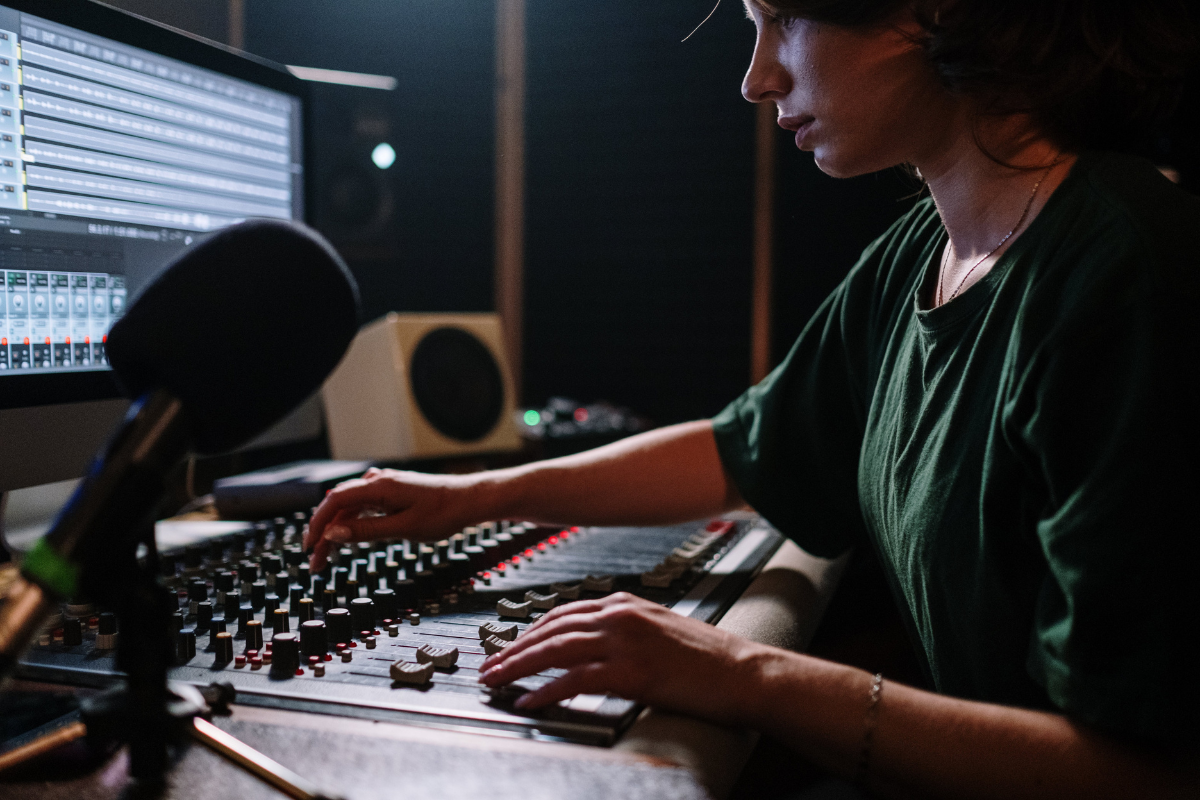
Photo: Cottonbro studio
MPs urge action to tackle ’endemic’ misogyny in music industry
Parliamentary inquiry finds women working in music have had their 'lives ruined' by men who have never been held to account, including 'household names'.
Government should change the law to extend protections relating to discrimination and harassment to include all freelancers to help tackle “endemic misogyny” in the music sector, MPs have said.
A report published today by the Women and Equalities Select Committee (WEC) on the back of an inquiry which began in June 2022 suggests that problems with abuse and discrimination are exacerbated due to the high number of freelance workers, giving rise to “significant power imbalances" in working relationships and "precarious employment practices”.
The inquiry found that freelance workers in the music industry are more likely to be discriminated against yet, in many cases, do not have the same level of protection under equalities legislation as those with more formal working arrangements, particularly in larger organisations with HR functions.
READ MORE
In a highly critical conclusion, the report said that the government's failure to make legislative changes to protect freelancers in line with standard employment law meant “vulnerable people continue to be unable to access the support they need while perpetrators of discrimination and harassment are allowed to go unpunished".
'Threatened into silence'
Other recommendations include enforcing a duty on employers to protect workers from sexual harassment by third parties, such as audience members or staff they have not directly employed. The report notes that government had previously supported this proposal before rejecting it last year.
It also advised the government to extend the time limit to bring Equality Act-based cases to the employment tribunal from three months to six months to reflect that many victims of bullying and harassment don’t report it immediately and that for music sector workers, there are not always clear reporting pathways.
The inquiry found that where complaints against employers are made, victims were often being “threatened into silence”.
The report calls on ministers to prohibit the use of non-disclosure agreements (NDAs) in cases involving sexual abuse, sexual harassment or sexual misconduct, bullying or harassment, and discrimination relating to a protected characteristic as well as a retrospective moratorium for those who have signed them previously.
“Women in the music industry have had their lives ruined and their careers destroyed by men who have never faced the consequences for their actions,” the report said.
“Much of the evidence we received has had to remain confidential, including commentary on television shows and household names. That is highly regrettable but demonstrates the extent of the use of NDAs and the culture of silence.
“People in the industry who attend award shows and parties currently do so sitting alongside sexual abusers who remain protected by the system and by colleagues.”
The report does welcome the establishment of a single, recognisable body, the Creative Industries Independent Standards Authority (CIISA), which it said would help to "shine a light on unacceptable behaviour in the music industry and may reduce the risk of further harm".
Gender imbalances
In addition to looking at the workplace for music professionals, the report investigated gender diversity in music education and talent development, suggesting that improvements in equal participation statistics often mask “significant imbalances in certain disciplines".
The report found that some instruments, roles, courses and genres maintain a “strong association with gender”, which can result in an unwelcoming environment for women and girls, either through “casual misogyny” or more directly through “bullying, sexualisation and sexual harassment”, citing music technology and jazz courses as particularly unwelcoming environments for women in part because of a lack of female role models.
The inquiry heard evidence that women who play instruments considered "masculine" are often held to a higher standard than their male counterparts, with mistakes seen as "confirmation of a belief that women are less capable".
In many cases, the report found that women are discouraged from playing certain instruments at all.
At a private roundtable, one participant said: “There is this idea that if you’re a girl, you can’t play the drums, or if you’re a girl, you can’t play the trumpet really loudly because it will make you look ugly."
The Musicians’ Union described female students being cat-called in rehearsals, made to feel uncomfortable by male lecturers, and told they couldn’t play their instrument.
In its recommendations, the report said that music colleges, conservatoires and other educational settings need to do more to address the gendering of roles and improve the visibility of and support for female role models.
It also advised government and industry bodies to offer funded opportunities for women and girls to study subjects in areas of the music industry that remain male-dominated.
Shift in behaviour
“Women’s creative and career potential should not have limits placed upon it by ‘endemic’ misogyny which has persisted for far too long within the music industry," said Chair of the Women and Equalities Committee, Rt Hon Caroline Nokes MP.
“Our report rightly focuses on improving protections and reporting mechanisms and on necessary structural and legislative reforms.
“However, a shift in the behaviour of men—and it is almost always men – at the heart of the music industry is the transformative change needed for talented women to quite literally have their voices heard and be both recognised and rewarded on equal terms.”
Join the Discussion
You must be logged in to post a comment.